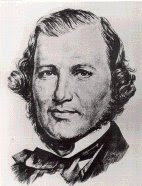People are in nearly universal agreement that criminals must be punished - even the most compassionate left-winger will concede that some form of penalty is necessary - but by what standard of justice should that punishment be meted out? When is the death penalty justifiable, if ever?
The Canadian justice system made its feelings known on the matter on July 14th, 1976. Canada formally abolished the death penalty and cited three principal reasons for doing so:
(1) The possibility of wrongful conviction
(2) Questions regarding the state/government's right to take the life of an individual
(3) Uncertainty regarding the deterring effect of capital punishment
It is my opinion that the first point has the most force. I contend that, in a state of nature, any person would be morally justified in executing an individual who they can irrefutably prove has committed murder (provided, of course, that mens rea and actus rea can be shown). If we accept that every individual has a right to their own life, then the willful and malicious taking of a human life seems to demand the forfeiture of the guilty party's own right to the same. Consequently, it seems clear that capital punishment is morally permissible in a state of nature given complete knowledge regarding the event.
Translating this moral permissibility into public policy, however, is complex to say the least. Juries and judges are far from omniscient and if a single innocent life is taken because of capital punishment then a horrendous injustice has occurred and the policy must be judged wholly unacceptable. This concern was obviously paramount in Canada's elimination of the death penalty since the Steven Truscott case is considered to have been a crucial factor in the decision.
There may, however, be a way of constructing a policy to avoid this trouble. I'm not a legal philosopher but, given a situation in which the standard of absolute certainty (reasonable doubt would not be sufficient) are met, I see no reason why this problem should be damning to capital punishment in all cases. The demand for the highest possible standard of proof would make it very rare that the death penalty be applied, but, theoretically, capital punishment could still be a consistent and moral public policy.
The second point does not hold as much force as the first. The government is not some abstracted entity that can boast its own unique moral code. The government is merely a collection of individuals. Agents acting in its name are morally justified in doing only that which an individual is morally justified in doing with the obvious exception of the use of physical coercion in order to administer the law. Since we have established that an individual has the right to implement capital punishment in a state of nature given absolute proof, and given that we surrender the right to actualize that punishment ourselves by entering into society, the government should be perfectly justified in applying capital punishment as a policy.
To address the final point, I would be best served by quoting H.L. Mencken on the subject:
[This argument's] fundamental error consists in assuming that the whole aim of punishing criminals is to deter other (potential) criminals--that we hang or electrocute A simply in order to so alarm B that he will not kill C. This, I believe, is an assumption which confuses a part with the whole. Deterrence, obviously, is one of the aims of punishment, but it is surely not the only one. On the contrary, there are at least half a dozen, and some are probably quite as important. At least one of them, practically considered, is more important. Commonly, it is described as revenge, but revenge is really not the word for it. I borrow a better term from the late Aristotle: katharsis. Katharsis, so used, means a salubrious discharge of emotions, a healthy letting off of steam. A school-boy, disliking his teacher, deposits a tack upon the pedagogical chair; the teacher jumps and the boy laughs. This is katharsis. What I contend is that one of the prime objects of all judicial punishments is to afford the same grateful relief (a) to the immediate victims of the criminal punished, and (b) to the general body of moral and timorous men.
Considering these points, it seems that capital punishment is perfectly acceptable from a moral perspective but that practical and epistemological considerations are potentially a deal-breaker. Governments are theoretically justified in executing criminals who willfully and maliciously commit homicide while in full possession of their faculties but, unless the problem of wrongful executions as raised in the first point can be persuasively addressed, the current policy in Canada is likely the proper one.
UPDATE: I crossposted this article at Dust My Broom and we had an interesting discussion in the comments section. The debate seemed to boil down to whether or not it is justifiable to sacrifice an innocent individual for the collective good of society. My answer was vehemently to the negative while many others supported the maxim "the ends justify the means." Judge for
yourselves.












